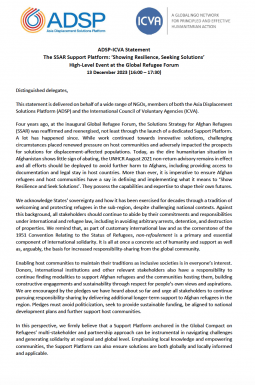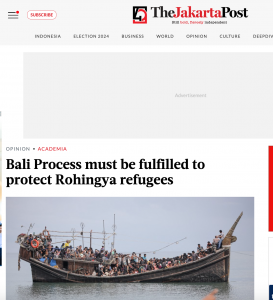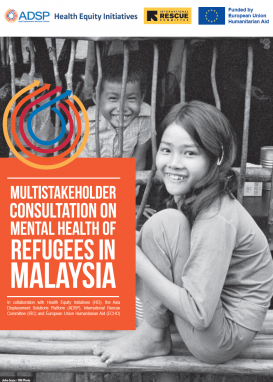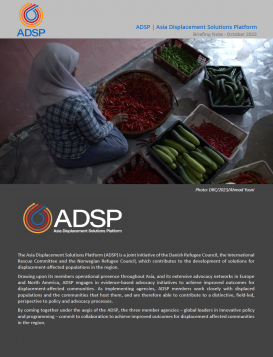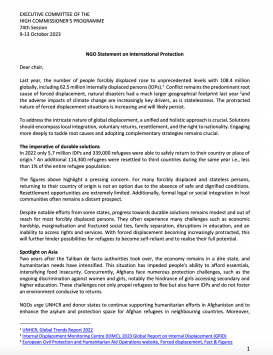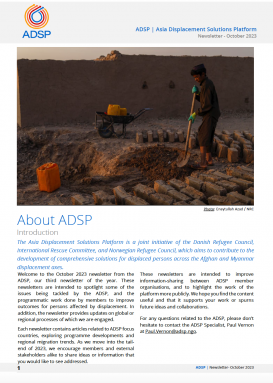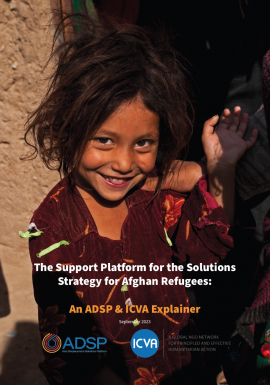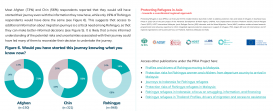ADSP-ICVA Statement – The SSAR Support Platform: ‘Showing Resilience, Seeking Solutions’
At the 2023 Global Refugee Forum, the Asia Displacement Solutions Platform (ADSP), in partnership with the International Council of Voluntary Agencies (ICVA), delivered a joint statement during the session entitled ‘The SSAR Support Platform: ‘Showing Resilience, Seeking Solutions’ – High-Level Event at the Global Refugee Forum’. The full written statement is available below, as well…

